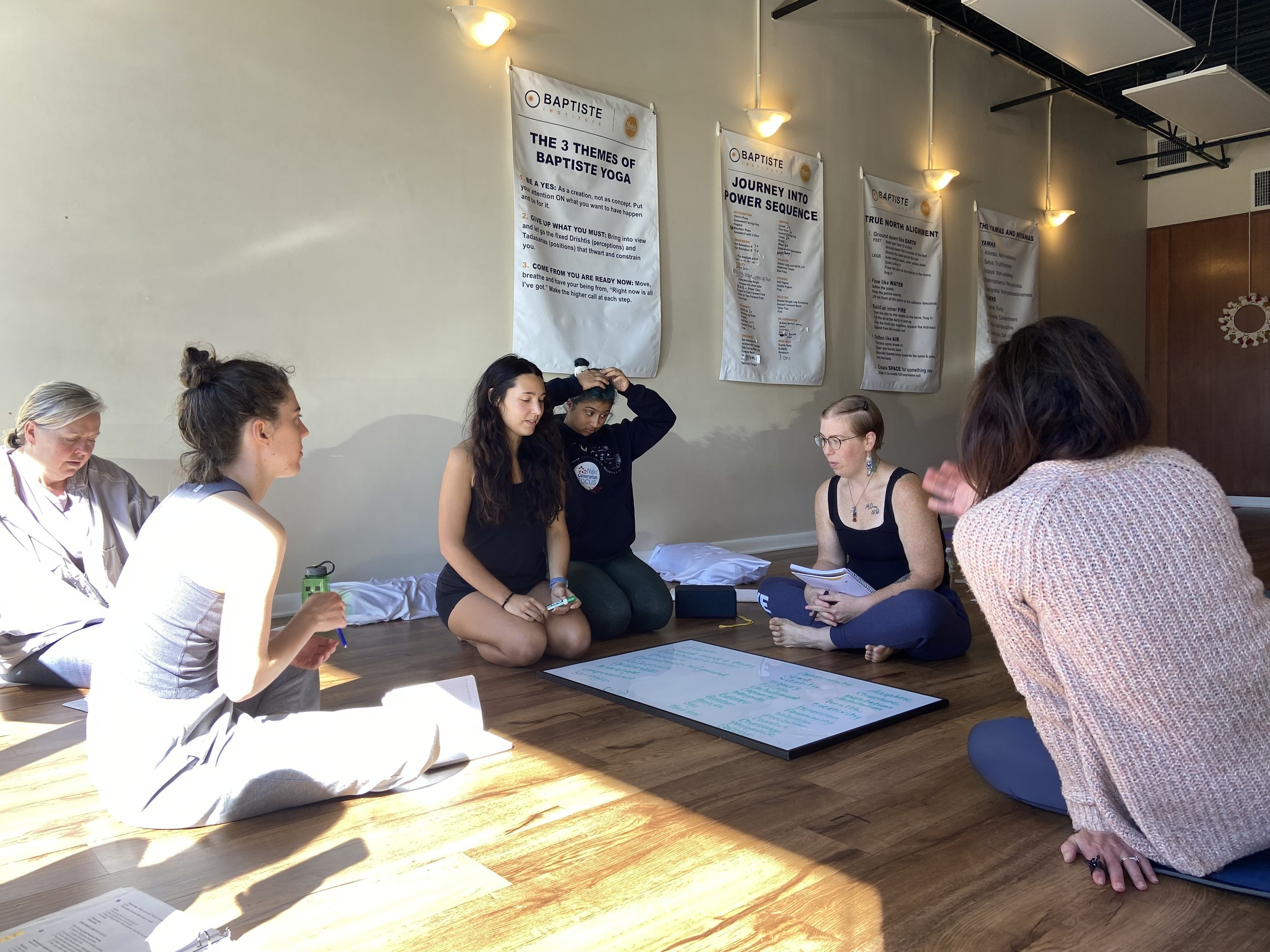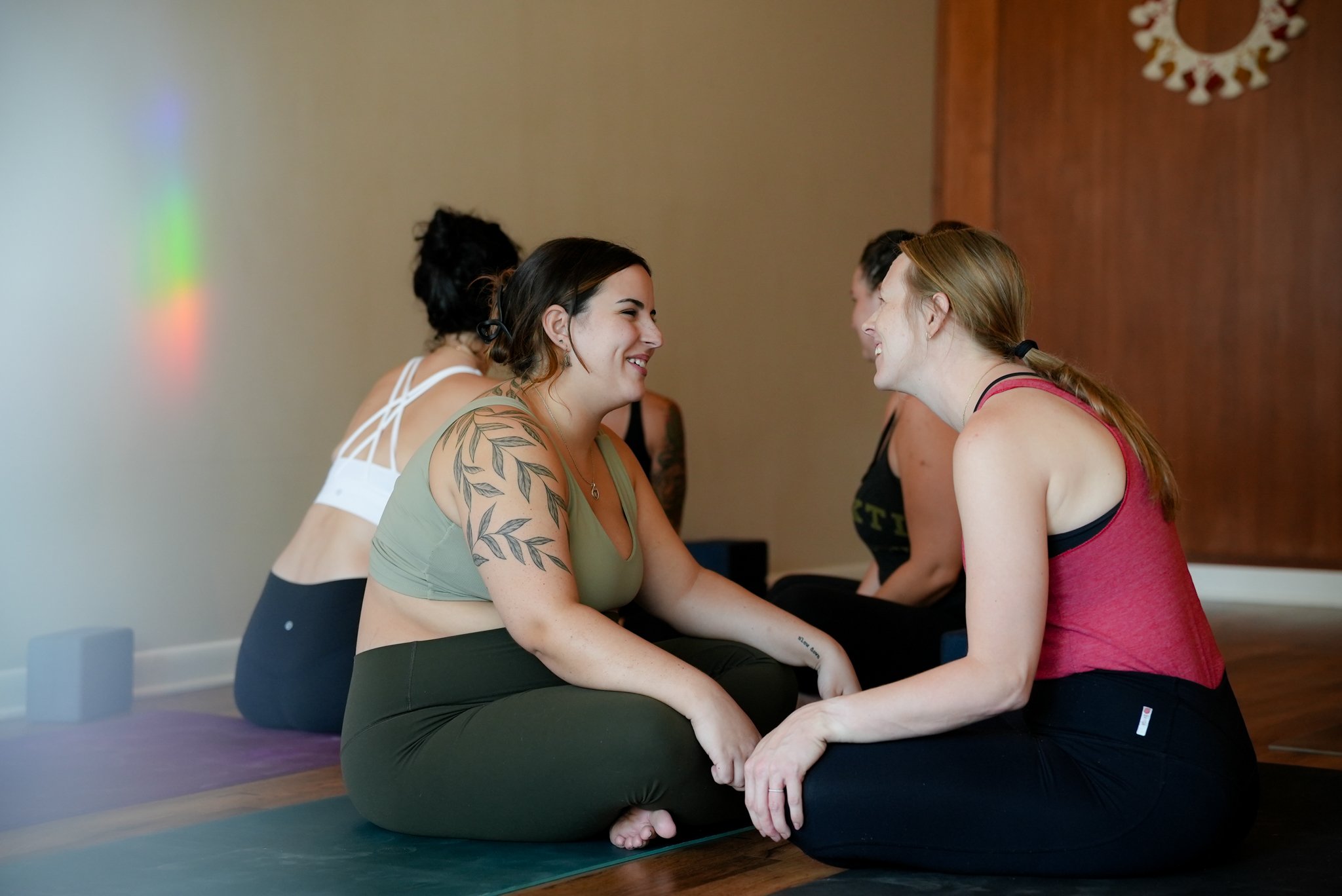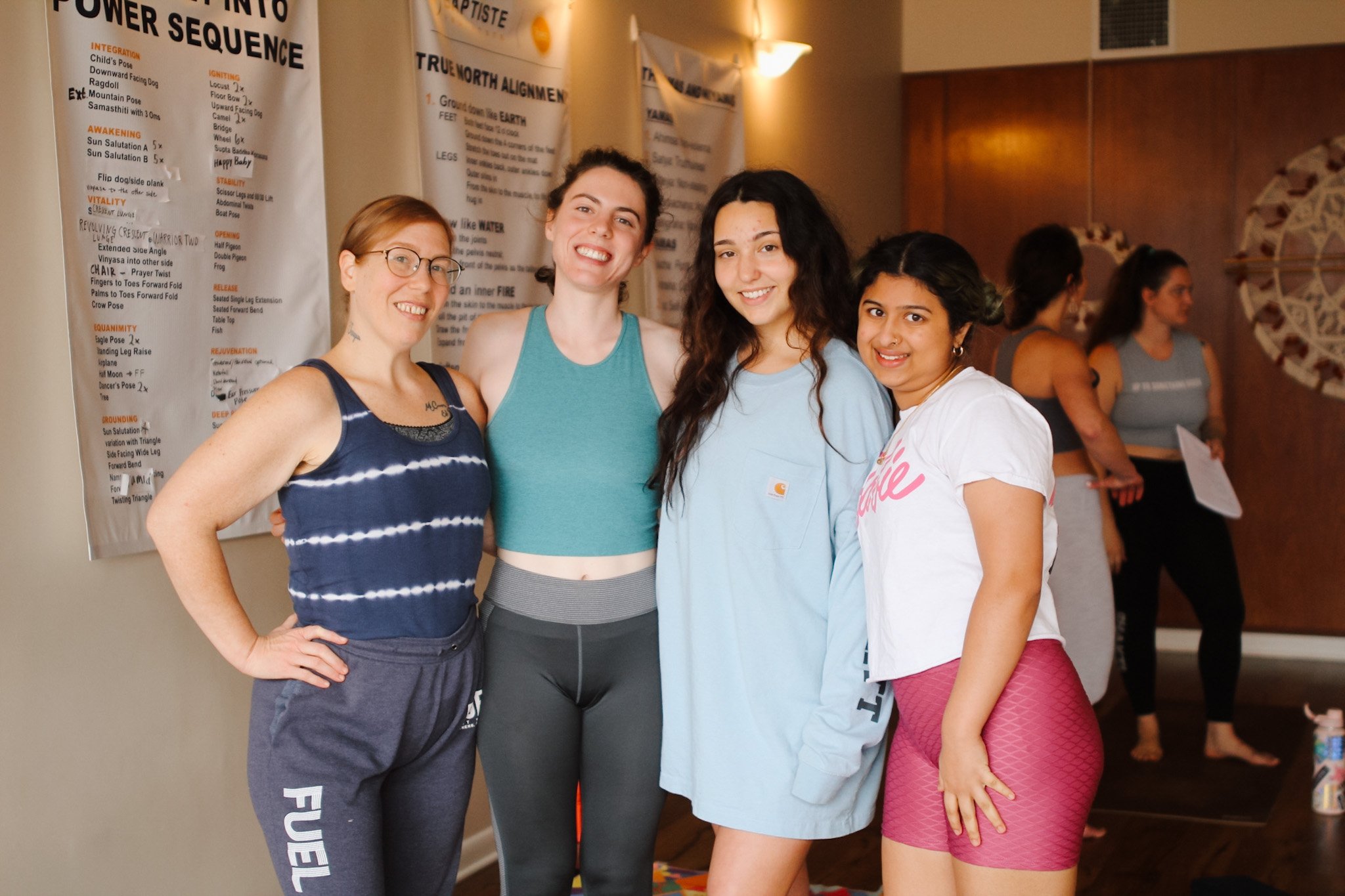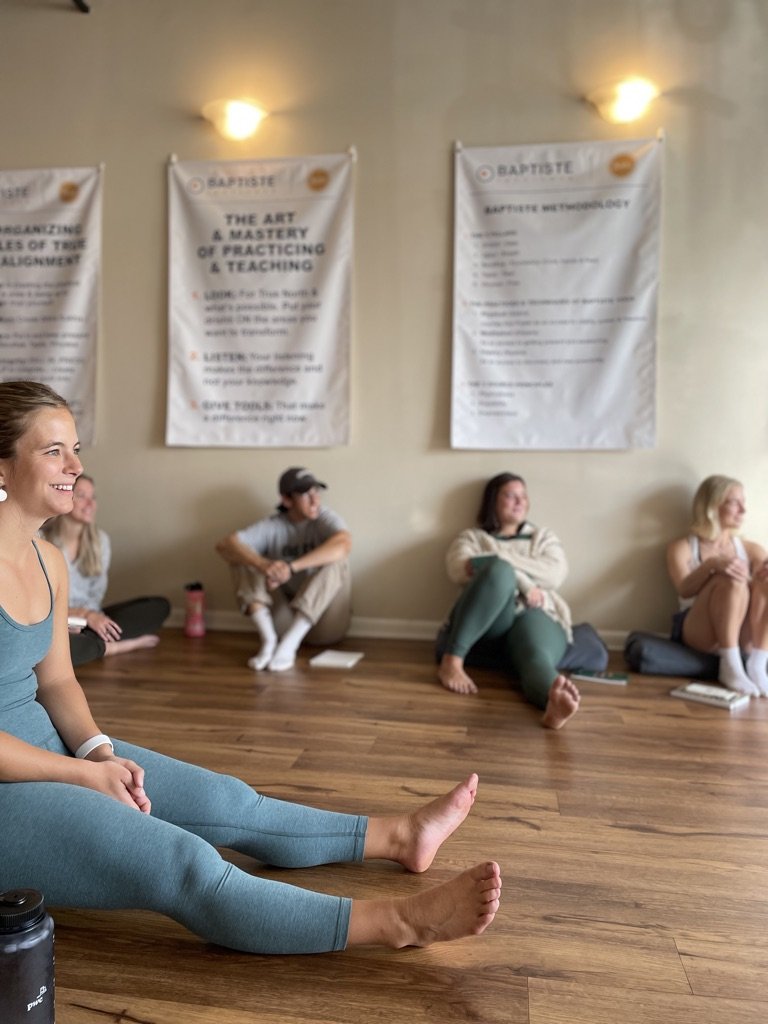Way of being x shakti yoga athens
present
50HR Trauma informed yoga teacher training







The world of fitness is changing.
As conversations around inclusivity, equality, and social justice grow, the need for trauma-informed leaders has never been greater.
This 50HR Yoga Alliance accredited training will equip yoga teachers and non-yoga teachers alike with the tools to facilitate inclusive, compassionate trauma-informed spaces for survivors in both clinical and non-clinical environments.
If You Want To…
Grow in your confidence as a leader, teacher, mentor, or authority figure
Establish meaningful, lasting connections with others that transcend the surface level “boss/employee” or “teacher/student” relationship
Learn how to be a ‘safe place’ for those who look up to you
Deepen your understanding of the brain/body connection
Develop a toolkit of conversations, movement styles, and breathwork exercises to aid you in comforting and empowering trauma survivors
…..this training is for you.
WHERE
The training will be held on site at Shakti Yoga Athens: 940 Prince Ave., Suite D; Athens, Georgia, 30606.
WHEN
February 7-9 & 14-16, 2025
The times for each of the sessions are as follows:
Fridays, 5-9pm
Saturdays, 9am-5pm
Sundays, 9am-4pm
INVESTMENT
$599 before January 1; $649 after.
Payment plans, scholarships, and BIPOC pricing available upon request.
What You’ll Learn:
The neuroscience of trauma, PTSD, and polyvagal theory
Communication styles and conflict resolution methods to support integrous, honest dialogue
How to use movement, meditation, breath work, and other somatic modalities to heal the impact of trauma
How to sequence a yoga class from a trauma-informed lens
Methods of adjusting, assisting, and cueing bodies with inclusivity and dignity
How our individual lived experiences equip us to be unique and qualified administrators of restoration and remedy
The role of a teacher in decolonizing the practice of yoga and broader fitness spaces
FAQ
How much does trauma informed teacher training cost?
Our 50HR Trauma Informed Teacher Training is an investment of $649. Students who submit an application of interest on or before January 1, 2025 will automatically receive early bird pricing ($599)!
Do you offer scholarships and payment plans?
Absolutely. In fact, accessible pricing is a big part of Shakti’s commitment to dismantling financial inequality. Payment plans are always an option, regardless of your request for a scholarship or ability to pay tuition in full.
Scholarships are handled on a per-applicant basis, and pricing for BIPOC/people of marginalized identities is available upon request.
What does the cost of training include?
Cost of training includes all six in-person training sessions, located at the Shakti studio in Athens, GA; all training handouts and materials; two weeks of unlimited yoga at Shakti Yoga Athens (for the duration of your training), and a printed graduation certificate.
Where is the training located?
The training will be held on site at Shakti Yoga Athens. Our address is 940 Prince Ave., Suite D; Athens, Georgia, 30606.
What are the dates and times of the training?
Shakti’s 50HR Trauma Informed Yoga Teacher Training will take place February 7-9 & 14-16, 2025.
The times for each of the sessions are as follows:
Fridays, 5-9pm
Saturdays, 9am-5pm
Sundays, 9am-4pm
Attendance in entirety is expected for each session in order to successfully qualify for all Yoga Alliance credit hours. Students who are unable to attend all scheduled training hours will have the option to make up class times at the rate of $30/hr, scheduled privately with one of Shakti’s teacher trainers within one month of the course’s completion.
Who is leading Shakti’s 50HR Trauma Informed Yoga Teacher Training?
This training will be lead by Kayla Carnes, and co-facilitated by Shakti’s owner Lucy Stelmack and founder Ruby Chandler. You can read more about the leaders and their credentials HERE.
Who is a trauma informed yoga teacher training for?
Short answer: any person working with people.
Long answer: yoga teachers, social workers, educators, therapists, psychologists, parents, nutritionists, coaches, lawyers, and healthcare workers will all benefit from a deepened understanding of the mind/body connection and trauma informed communication techniques.
If you are an individual looking for a way to create and facilitate a safe space for open conversations, inner healing, emotional vulnerability, and personal transformation—whether in your workplace, school, internship, or at home—this training is for you.
What can I do with a trauma informed teaching certificate?
While it’s true that many students who take trauma-informed yoga teacher training are yoga teachers, you don’t need to know anything about yoga to utilize the elements of this training.
Graduates of Shakti’s 50HR Trauma Informed Yoga Teacher Training can apply their knowledge in classrooms, during parent-teacher conferences, when counseling or providing therapy to vulnerable groups, when facilitating group recovery efforts, and to enhance their communications with peers or clients in high-stress professional settings.
Many employers consider Yoga Alliance certified training a part of professional development, and may extend a stipend or paid time off.
And, because Way of Being (our host LLC) is a YACEP (Yoga Alliance certified continuing education provider), yoga teachers can use these training hours towards their Yoga Alliance continuing education requirements.
What is trauma informed yoga?
In simple terms, trauma-informed yoga is a way to practice dynamic movement and breathwork in a safe, accessible space tailored for trauma survivors.
It is typically facilitated by a trained yoga teacher who understands and respects the implications of trauma on the mind and body, and consists of postures and breathing exercises that support the student in experiencing physical sensations in a manageable way.
Trauma informed yoga can look like the following:
Asking for a student’s consent for physical assists, rather than assuming a student’s presence is a “green light” for receiving hands-on physical contact
Using language, verbs, and descriptive adjectives that are inclusive, intentional, and respectful of adverse lived experiences
Moving, speaking, leading, and listening in a way that accommodates the needs of a person struggling with trauma, mental illness, injury, or emotional instability
Successfully creating an environment that isn’t overstimulating or overpowering (warm, low lights, welcoming music, gentle scents)
Decentralizing an individual’s physical ability/appearance and speaking to the deeper parts of people in need of compassion and empowerment


